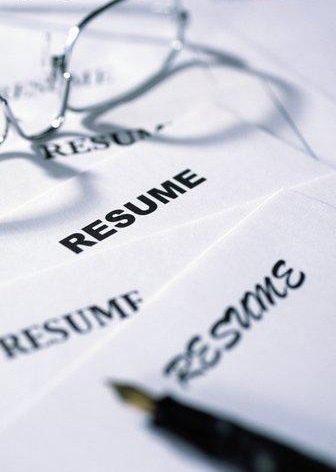Writing your resumé the journalist way: the Dos and Don’ts
WRITING resumés can be a pain, but Marcella Purnama has some expert tips that will have you producing a resume that’s both easy on the eyes and makes you look good!
I have just finished writing my resume and I can tell you, it was a painful experience. But after 10 days, five editors and 13 versions later, my resume is finally done (or not). That’s what you get for wanting to cram your 20 years of life into two good-looking pages.
I’ve come to the conclusion that your resume is like a book cover. The layout is the nice design. The content is the enticing blurb at the back. And your referee list is the cool comment from a respected industry person printed on the inside sleeve.
Of course, no one should judge a book by its cover, but when you’re given 1,000 books to choose from, well, who doesn’t? So do your future employers a favour and make your resume the best book cover they’ve ever read.
The don’ts of resume writing
Don’t use a generic template:
Don’t send a resume that’s used the *insert name here*, *insert education here* template. Put some effort into designing something unique.
Don’t be dishonest:
Don’t write “working from 2010 to 2011” then say you have been working for two years, when it’s only actually been from December 2010 to January 2011.
Don’t oversell yourself:
Of course, you need to sell yourself and get across the awesome stuff you have been doing, but overselling is a killer and might come off as fake or exaggeration.
Don’t write about high school stuff:
I actually just found out that no one cares if you were the leader of your student council, the editor of your yearbook or the winner of a spelling competition. The skills you gained from this area are no longer relevant, and it shows you haven’t done anything noteworthy since leaving high school. Ouch.
Don’t write about irrelevant stuff:
You are interesting, but just be interesting in the relevant area you want to get a job in. Only include experience or skills that are relevant to the job you’re applying for. Then you can talk about all that other interesting stuff in the interview.
Don’t write your objectives in a generic way:
Including an objective is optional, but if you do have one, remember a generic objective is, well, generic. A good objective won’t actually land you a job, but a bad one can cost you one, so I don’t really bother with putting one. Frankly speaking, everyone wants to gain experience, utilise their knowledge and to put their theories into practice. You are not unique in this sense so unless you have a really awesome and unique objective, you’re better off without one.
The dos of resume writing
Do use descriptive words:
If you are a journalist, the “show, don’t tell” rule still applies. Instead of writing “good journalism skills”, it’s better to say, “wrote articles in different genres including news, lifestyle, entertainment, and opinion pieces”. See the difference? The trick is to be specific and descriptive. Show exactly what you’ve done. Don’t be vague.
Do stick to the two-page rule:
The more space you have the more chances you have to speak nonsense. If you can’t edit and be concise with your own resume, how can you be concise with your own work in the future?
Do write a short, sweet and strong cover letter:
Write your relevant experiences clearly and highlight the most important positions and characteristics.
Do your research:
Look at resumes from people in your field (just Google them and you’ll be surprised by how many there are) and browse for ideas and structure. List the things they have done well and the things they haven’t. I showed my resume to my sister and she did extensive surgery (well, she is a doctor) on it and gave me links to other journalists’ resumes online. Can you believe it? She is even more journalistic-minded than me.
Do show to others for feedback:
Get someone (or actually, someones) to review your resume. Preferably you want people who are experts in your field to read it. Of course, you can show your resume to your peers too. I showed my resume to five different people – one peer, one consultant friend, one media expert, one design expert (to check the layout) and one medical professional (my sister). They all contributed feedback to different parts.
Do check your grammar and do edit your resume:
Not once, not twice, but multiple times. This is your professional autobiography in two pages. And if you edit your assignments more than five times, you shouldn’t edit your resume only twice.

